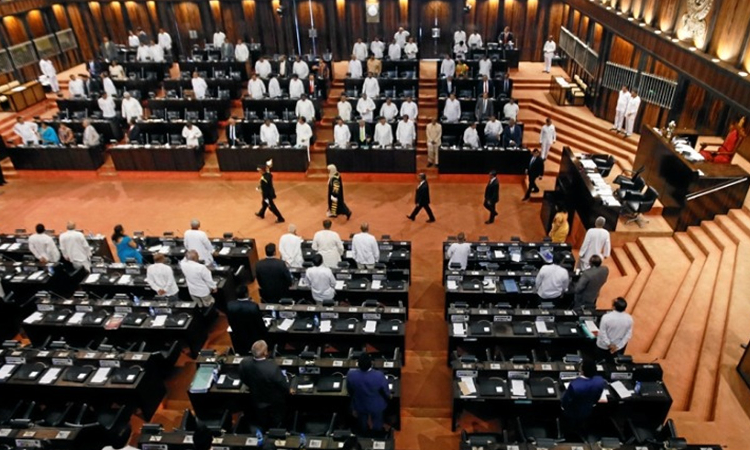Rajapaksa Resigns: How Is The Next President Of Sri Lanka Is Elected?
B M Amarnath
20 July 2022 9:27 AM IST

Image Courtesy: Al Jazeera
Sri Lanka has been marred by protests resulting from the devastating economic crisis, that has now snow-balled into a political vacuum. Following large-scale protests, the (former) President, Gotabaya Rajapaksa, tendered his resignation to the Speaker of the Sri Lankan Parliament. Once the Office of President is vacant as a result of resignation, what does the Sri Lankan constitution say about the aftermath? The procedure in such a scenario is governed by Article 40 of the Constitution of Sri Lanka and the Presidential Elections (Special Provisions) 1981 ("Act").
Similar to the French model, Sri Lanka follows the semi-presidential system wherein both the Prime Minister and President enjoy executive powers, and as such the latter is also directly elected by the people. Though the President of Sri Lanka is directly elected at the end of the term of five years, the process is different when a vacancy arises. Before the succeeding President occupies Office, Article 40(1)(c) requires that the sitting Prime Minister (or Speaker of Parliament if the office of Prime Minister is vacant, as mandated by the proviso to Article 40(1)(c)) shall become the Acting President until the next President is elected by Parliament. Accordingly, the current Prime Minister, Ranil Wickramasinghe, shall be the Acting President, until the Parliament elects a new one.
Article40(1)(a) mandates that a new President elected by Parliament shall occupy office only upto the unexpired term of the resigned President. The former President, Gotabaya Rajapaksa was elected to office in November of 2019 which was due to expire in 2024. Therefore, the new President shall be President until 2024, when the next Presidential election will be held.
The accession of the Prime Minister to Acting President is automatic. Subsequently, the Prime Minister (now Acting President) will appoint a cabinet minister as Acting Prime Minister in accordance with Article40(1)(c) of the constitution. The accession by Prime Minister shall set into motion the process to elect a new President. Such an election should take place within thirty-days of the vacancy arising. Consequently, the new President should be elected before 14 August 2022.
Section 4 of the Act automatically summons the Parliament within three days of the vacancy. The Act places a statutory duty on the Secretary-General of the Parliament, the chief administrative official of the house, to inform the members of the house the date and time of the meeting of Parliament. Once the Parliament convenes of such a fixed day, the secretary-general shall invite nominations for election to the office of President. The nominations shall be received by the secretary-general between forty-eight hours and seven days from the Parliament's meeting.
If only one member is nominated within the deadline, the secretary-general shall declare such person to the President in accordance with Section 6(4) of the Act. If more than one nomination has been proposed and seconded, the Parliament shall fix the date of election, which shall be no later than forty-eight hours from receiving the nominations. On the day of election, the votes are cast by ballot paper. The members of the Parliament can also give their second and third preferences in their ballot paper at the time of casting their vote.
If a candidate receives more than one-half of the valid votes cast, such a candidate will be declared President. The Act lays down the procedure in the event that a candidate does not receive more than one-half of the valid votes cast. If there are three or more candidates contesting, the candidate with the least number of votes is eliminated. Subsequently, the second preference votes of those who voted for the eliminated candidate is counted and added to the remaining candidates' tally. This counting procedure shall eventually ensure that a candidate is elected to the office of President.
The election to the Office of President through this procedure can be called into question by presenting an election petition to the Supreme Court of Sri Lanka. The grounds of the election petition can be undue influence or bribery, improper reception or refusal to vote or non-compliance with the provisions of the Constitution or the Act.
The author is currently pursuing his LL.M in Human Rights from the University of Edinburgh. Views are personal.


